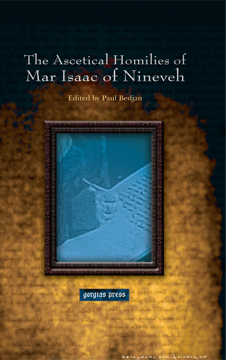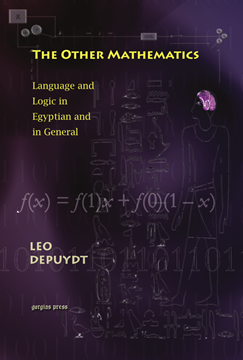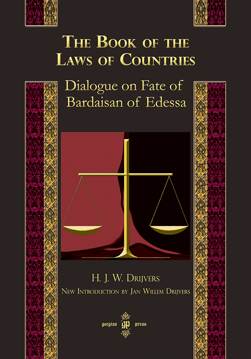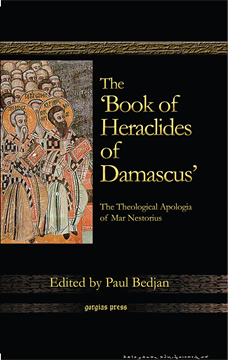The Ascetical Homilies of Mar Isaac of Nineveh
Edited by Paul Bedjan
ISBN: 978-1-59333-389-8
St. Isaac of Nineveh, or, as he is sometimes known, St. Isaac the Syrian, was born in the region of modern Qatar and lived during the seventh century. Ordained as the bishop of Nineveh sometime between 661 and 681 CE, Isaac withdrew from his ecclesiastical office after only five months, retiring to live as a monastic hermit in the mountains of southeastern Iraq. Translated from their original Syriac into a number of other languages, St. Isaac’s spiritual writings have been read by Christian monastics for centuries. The present volume gives the original Syriac text edited by Paul Bedjan.
$249.00 (USD) $149.40 (USD)
The Other Mathematics
Language and Logic in Egyptian and in General
By Leo Depuydt
Series: Gorgias Studies in the Ancient Near East 5
ISBN: 978-1-59333-369-0
This book is about attribute mathematics, in which nothing ever gets bigger or smaller. More specifically, it is about some of what attribute mathematics can do toward the full digitalization of thought and language. The matter is relevant not only directly to linguistics and philosophy but also indirectly to electrical engineering and neuroscience. The twenty-first century will be that of the brain. Human existence will gradually be turned inside out as tools such as genetics and Boolean algebra allow us to see ourselves function on the smallest scale while it is happening.
$181.00 (USD) $108.60 (USD)
The Book of the Laws of Countries
Dialogue on Fate of Bardaisan of Edessa
ISBN: 978-1-59333-371-3
The Book of the Laws of Countries (BLC) by Bardaisan of Edessa belongs to the most important writings of early Syriac literature. The text reflects the intellectual climate of northern Mesopotamia and in particular that of the city of Edessa, at the end of the second century and the first decades of the third century CE.
$105.00 (USD) $63.00 (USD)
The Theological Apologia of Mar Nestorius
Nestorius Le Livre D'Heraclide
By Paul Bedjan
ISBN: 978-1-59333-400-0
Nestorius, deposed by the Council of Ephesus, spent his final years composing an apologia defending his theological beliefs, which became known as the ‘Book (or ‘Bazaar’) of Heraclides’. The Greek original is lost, but this Syriac translation survived in a single manuscript in the library of the Catholicos of the East, in his mountain retreat of Qodshanes. Bedjan gives an edition of this vital Syriac text.
$293.00 (USD) $175.80 (USD)
The Baqubah Refugee Camp
An Account of Work on Behalf of the Persecuted Assyrian Christians
By H. H. Austin
ISBN: 1-59333-401-X
This book gives a detailed picture of the Baqubah refugee camp by the commandant of the camp. Austin discusses the camp’s organization and daily life. The book also discusses the work of the “Assyrian Contingent” that was formed in the camp.
$105.00 (USD) $63.00 (USD)
The Book of the Bee
Edited by E. A. W. Budge
ISBN: 1-59333-402-8
The Book of the Bee is a collection of theological and historical texts compiled by Solomon of Akhlat in the thirteenth century. The book consists of 55 chapters discussing various topics including the creation, heaven and earth, the angels, darkness, paradise, Old Testament patriarchs, New Testament events, lists of kings and patriarchs, and the final day of resurrection. This edition by E. A. W. Budge gives the original Syriac text with an English translation. The edition also includes an extract from the Arabic version of the same text.
$173.00 (USD) $103.80 (USD)





